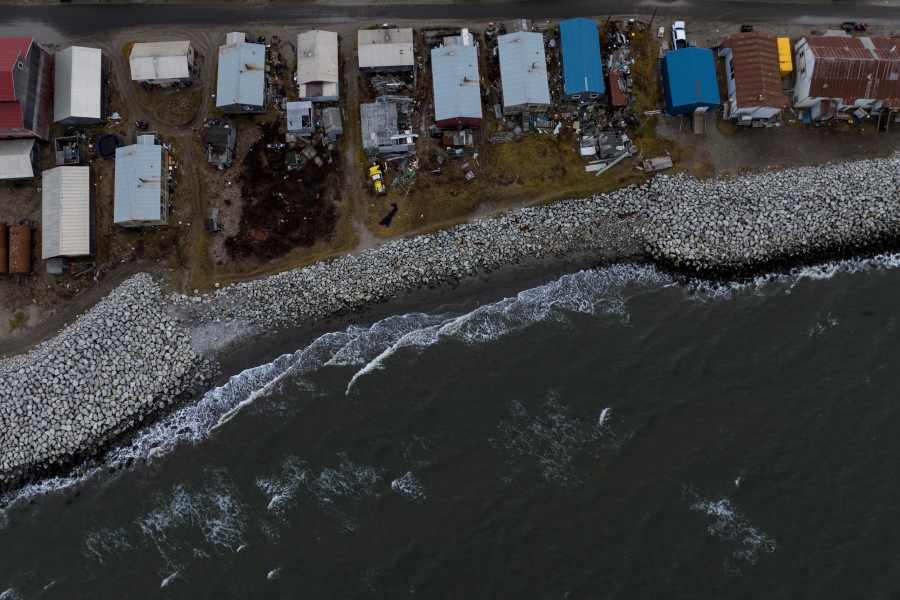KUALA LUMPUR: Rising sea levels pose "unthinkable" risks to billions of people around the world, with far-reaching implications for human rights, international law, security, and societies.
United Nations Secretary-General Antonio Guterres recently told the Security Council this as members held their first-ever debate on the implications of rising sea levels on global peace and security.
"Rising seas are sinking futures," he warned, describing sea-level rise as a threat-multiplier.
The phenomenon, he said, could also threaten lives and jeopardise access to water, food, and healthcare.
Further, he said saltwater intrusion could decimate jobs and entire economies in key industries like agriculture, fisheries, and tourism.
"It can damage or destroy vital infrastructure — including transportation systems, hospitals and schools, especially when combined with extreme weather events linked to the climate crisis.
"And rising seas threaten the very existence of some low-lying communities and even countries," he said in his speech.
According to recently released data from the World Meteorological Organisation (WMO), global average sea levels have risen faster since 1900 than over any preceding century in the last 3,000 years.
The global ocean has warmed faster over the past century than at any time in the past 11,000 years, it said.
The WMO warned that even if global heating is "miraculously" limited to 1.5 degrees, there will still be a "sizeable sea level rise".
"Every fraction of a degree counts. If temperatures rise by two degrees, that level rise could double, with further temperature increases bringing exponential sea level increases," Guterres said.
He cautioned that countries like Bangladesh, China, India, and the Netherlands were all at risk.
Mega-cities on every continent will face serious impacts including Lagos, Maputo, Bangkok, Dhaka, Jakarta, Mumbai, Shanghai, Copenhagen, London, Los Angeles, New York, Buenos Aires and Santiago, he added.
Guterres said the danger is especially acute for nearly 900 million people who live in coastal zones at low elevations — that is one out of ten people on earth.
"The consequences of all of this are unthinkable. Low-lying communities and entire countries could disappear forever.
"We would witness a mass exodus of entire populations on a biblical scale. And we would see ever-fiercer competition for fresh water, land and other resources."
Guterres therefore urged more concerted action to address the root cause of rising seas, the climate crisis.
"Our world is hurtling past the 1.5-degree warming limit that a liveable future requires, and with present policies, is careening towards 2.8 degrees — a death sentence for vulnerable countries.
"We urgently need to reduce emissions and ensure climate justice.
"Developing countries must have the resources to adapt and build resilience against climate disaster."
Among other things, he said this meant delivering on the loss and damage fund, making good on the US$100 billion (RM443 billion) climate finance commitment to developing countries, doubling adaptation finance, and leveraging massive private financing at a reasonable cost.
He also emphasised the need to broaden the understanding of the root causes of insecurity.
This, he said, meant that identifying and addressing a much wider range of factors that undermine security — from poverty, discrimination and inequality, violations of human rights, to environmental disasters like rising sea levels.
"We must also improve foresight and early warnings to prepare and protect vulnerable communities.
"One prime example is our plan to ensure that early warning systems against natural disasters protect every person on earth within five years."
Meanwhile, Csaba Kőrösi, the current President of the General Assembly, who also addressed the Council, described climate change as "the greatest challenge of our generation".
He recalled that it was the "single most raised issue" by world leaders during the Assembly's high-level debate in September last year.
"It is the single biggest galvaniser of young people marching in your streets – because our inaction is robbing them of their future.
"It is an issue that demands focus and coherence across the UN system.
"For the General Assembly, this means accelerating action on climate and water," he said.
Citing data from the World Climate Research Programme, Kőrösi said at the current rate, sea levels will be 1 to 1.6 meters higher by 2100.
Therefore, he said in less than 80 years from now, 250 to 400 million people will likely need new homes in new locations.
Kőrösi also warned of devastating impacts for the world's "breadbaskets," especially fertile deltas along the Nile, Mekong and other rivers.
He further said climate-induced sea level rise is also provoking new legal questions that are at the very core of national and state identity.
He therefore urged the Council to recognise the significance of climate action as a key tool for peacebuilding, stressing that the data and frameworks to defend against the sea level threat already exist.
"We have the data. We have the frameworks. What is needed now – as ever – is the political will to act," he said.



